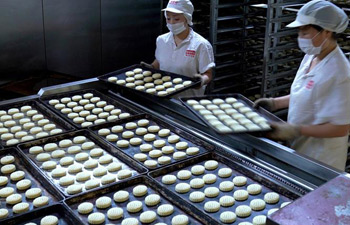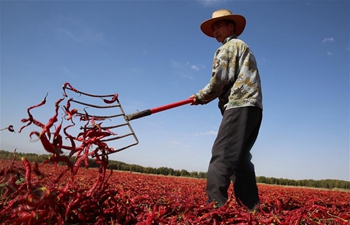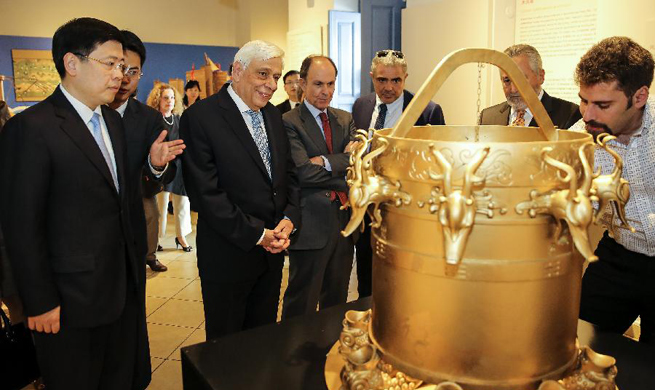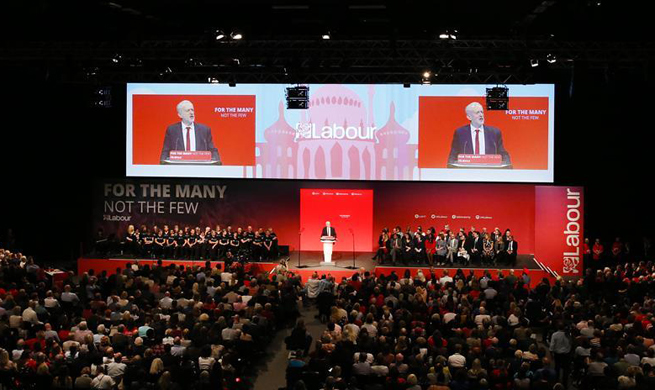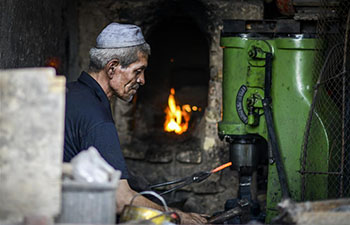SEOUL, Sept. 28 (Xinhua) -- South Korea's consumer price inflation stayed above 2 percent for three straight months as fruit and farm goods prices surged ahead of the Chuseok holiday, the South Korean version of Thanksgiving Day, official figures showed Thursday.
Consumer prices rose 2.1 percent in September from a year earlier, marking the third consecutive month of price increase, according to Statistics Korea.
It was the first time since June 2012 that the headline inflation hovered above 2 percent, which is the Bank of Korea (BOK)'s three-year inflation target through next year.
Higher inflationary pressure may force the BOK to bring forward the date of its policy rate hike as the central bank kept its benchmark rate on hold at an all-time low of 1.25 percent since June last year.
It neared the U.S. Federal Reserve's benchmark rate, which ranges from 1.00 percent to 1.25 percent. The potentially belated rate increase by the BOK could trigger foreign capital exodus from the South Korean financial market.
One of the BOK's seven-member monetary policy committee, which sets the policy rate through a regular meeting, indicated the need for policy rate hike as the benchmark rate of 1.25 percent stayed below a neutral rate.
The neutral rate refers to a benchmark interest rate, which neither stimulate economy nor deter inflation.
BOK Governor Lee Ju-yeol also hinted in June at the need for less accommodative monetary policy, but the central bank had yet to turn into a rate hike amid rising geopolitical risks on the Korean Peninsula.
South Korean stocks declined in recent days as foreigners dumped shares on worry about the geopolitical risks.
Higher inflationary pressure in South Korea, however, stemmed mainly from the supply side.
Fresh fruit prices jumped 21.5 percent in September from a year ago ahead of the 10-day Chuseok holiday, one of the country's most important holidays.
During the traditional holiday, South Korean family members come together from near and far away to share food and give thanks to ancestors. South Koreans tend to spend much money on food purchase ahead of the holiday.
Prices for agricultural, livestock and fishery products advanced 4.8 percent this month, raising the overall headline inflation by 0.41 percentage points. Prices for agricultural and fishery products gained 5.2 percent and 6.1 percent respectively.
Oil product prices added 6.1 percent this month, marking the fastest increase since May as global crude oil prices picked up.
Prices for vegetable declined 4.2 percent in September, posting the first fall in four months due to the high base effect. In the same month of last year, the vegetable prices surged on the sweltering heat that sharply reduced crop.
Egg prices jumped 24.4 percent on controversy over eggs contaminated by insecticides, but it was a lower increase than a 53.3 percent hike in August.
Prices for squid, tomato and onion logged a double-digit increase, lifting the overall farm goods prices.
The fresh food price index, which reflects the price moves of fruit and vegetable, rose 6 percent in September. The so-called livelihood price, which involves daily necessities, climbed 2.9 percent.
Services prices, which include private and public services costs as well as rent, added 1.8 percent this month.








